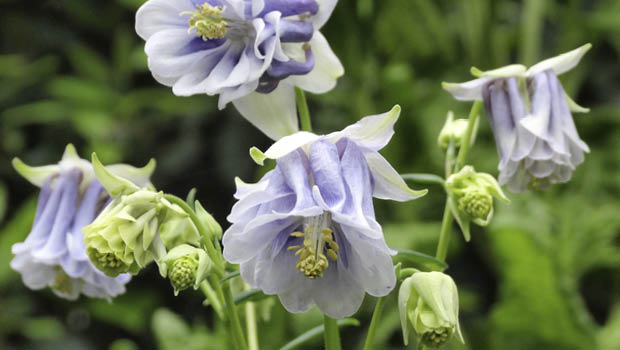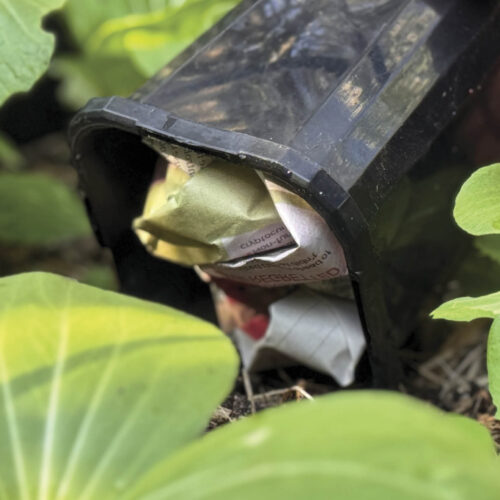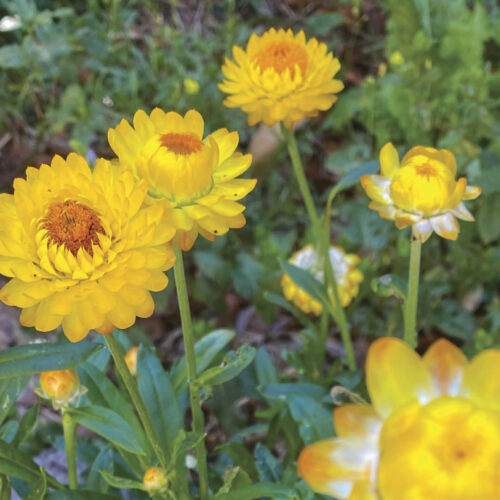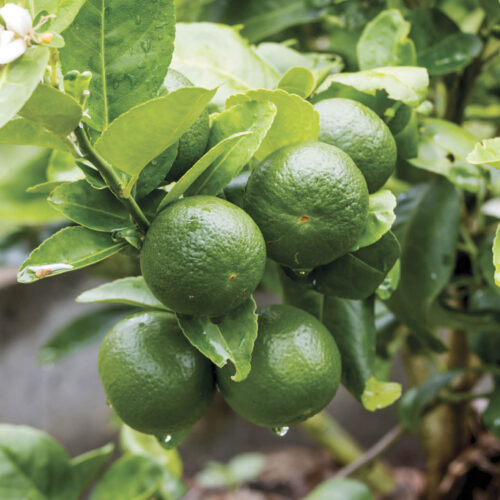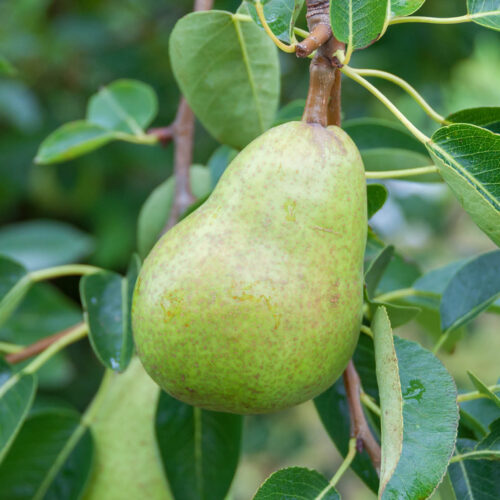Grow bee-attracting aquilegias
2021-02-16T03:45:41+11:00
The bonnet-like, bee-attracting aquilegias are captivating and well worth growing in your organic garden.
Aquilegias complement many other old-fashioned spring-flowering perennials.
Marguerite daisies, especially heritage single white varieties, are hardy and, when planted to the northwest of your aquilegias, provide shelter the latter needs. Similarly, try them near the base of climbing supports for clematis, honeysuckle, rambling roses or hardenbergia, where they’ll brighten shaded, empty spaces with colour.
True geraniums, or cranesbills, thrive in the same part-sun conditions that aquilegias like. Other old fashioned perennials like verbena, phlox, shasta daisies, peonies and delphiniums, or annuals such as stock, snapdragons and candytuft are also classic combos.
In slightly more or dappled shade, try them with sweet violets, hostas, hellebores, campanulas and forget-me-nots. Choose varieties with pale or bright flowers that stand out well in shade, rather than dark blues and blacks that vanish into the shadows.
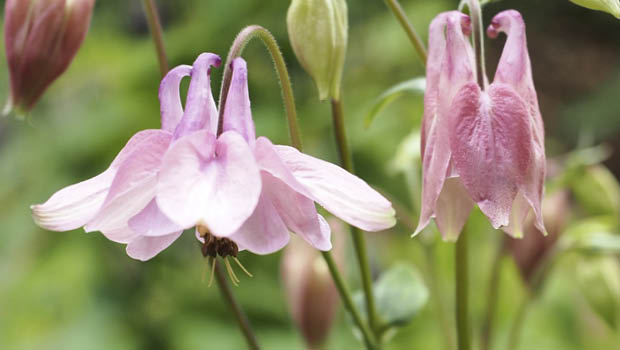
How to grow
Sun: Aquilegias need good light to flower well but, with our summers so much hotter than in the Northern Hemisphere, it’s best to give them protection from afternoon sun that shrivels flowers and shortens the life of your display. Morning sun only, or positions under deciduous trees where they receive full sun in late winter and early spring, but dappled shade in late spring and summer, are ideal.
Soil: Aquilegias tolerate most soils except for very acid or unimproved ones. Neither are they greedy: add a little manure or blood and bone, fertilise with a mulch of rotted compost in winter, and aquilegias will reward you with a stunning display every spring.
Water: Although Northern Hemisphere plants, aquilegias need less water than you might expect, because here they grow and set seed before the hottest time of year, when they conveniently enter summer dormancy. This means that, in my sheltered Mediterranean climate garden (rainfall approximately 900mm, primarily between autumn and spring), they naturalise in parts that receive no artificial irrigation. Conversely, they loathe waterlogging, so provide good drainage.
To get more expert organic gardening advoce, get a copy of the latest issue of ABC Organic Gardener magazine.

